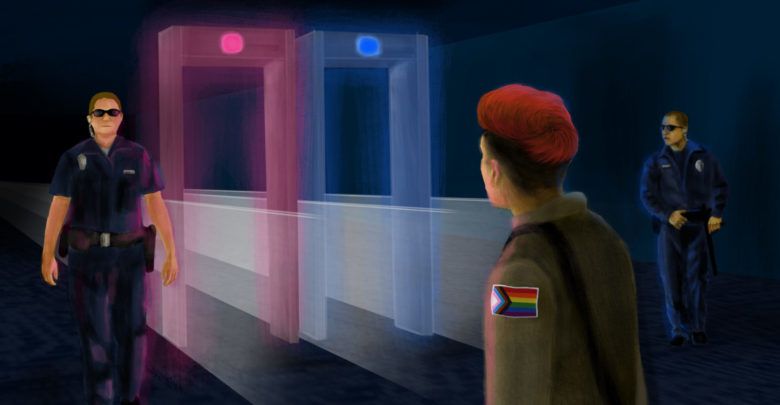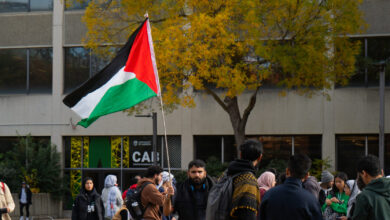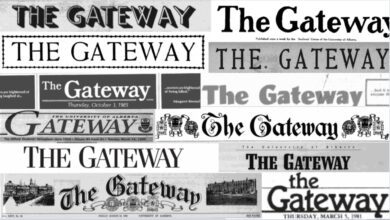 Arthur Macatangay
Arthur MacatangayFlying can be stressful for a variety of reasons. For travellers who are transgender, this stress is exacerbated by the possibility — and for some the reality — of being harassed or outed.
In June, transgender advocates across Canada called on WestJet to include an option for those who identified with the X gender marker. Advocates recounted their stories about misgendering from employees, and frustration about WestJet not offering the X identifier, despite the federal government allowing it on passports, travel documents, citizenship certificates, and permanent resident cards since 2019.
On June 8, WestJet announced that it would include an unspecified, or X, identifier option for all travellers, with the changes going into effect on June 28. The statement explained that the changes were previously in motion to introduce an X marker but had experienced “several setbacks resulting from the COVID-19 pandemic.” An apology was also issued.
“We appreciate the patience of our guests as we worked to make the necessary changes to our systems and apologize for the disappointment and frustration this has caused,” the statement read.
University of Alberta transgender student accused of “falsify[ing]” honourific identification
However, the experiences of transgender travellers at the airport also extend past WestJet and the delay for X gender identifiers.
Rowan Morris, a University of Alberta education student, says the difficulties transgender travellers encounter extend past the airline counter to the security and screening checkpoints. Morris is transmasculine non-binary and flew from Alberta to Nova Scotia in mid-May, prior to Westjet’s update to include the X identifier. On the flight there, they flew with WestJet, and recalled facing issues when choosing an honourific.
Originally, they had left the honourific space empty upon discovering that there were “no neutral honourifics [available] aside from doctor.” However, upon submitting the ticket, the website prompted an honourific to be chosen to proceed. They chose ‘Mr.’ and submitted the ticket.
“I ended up choosing ‘Mr.’ because that was the term I believed captured my identity best,” Morris said. “It was the term that [out] of all of them, I hated the least.”
When they got to the Edmonton International Airport (EIA), Morris lined up for an initial check, which was the first security personnel they spoke to. To this staff member, Morris recalls a brief question about their honourific, which they responded with, “I’m trans; there was no other option, really.” They moved forward without further issue, and got in line for a security check.
However, they recalled that the security agent that spoke to them next accused them of “falsify[ing] information.”
“I hand [the agent] my boarding pass, and he goes, ‘Mr.? You know, it’s really serious to falsify information to a TSA agent. That’s a serious offense, and you’d be banned from flying,’” they said. “I didn’t even attempt to explain the situation because he wouldn’t let me, and he tells me to move on.”
“At this point, I’m like, ‘oh my god. I haven’t even gone through [the] scanner and I’ve already been clocked.’ This really is not great.”
Then, they proceeded with the security check and were pulled aside after walking through the scanner because of the boarding pass discrepancy.
“They gave me a very demeaning and full patdown and I realized this is exactly what [trans people are] all going to have to go through.”
Rowan morris
On the return flight, Morris chose to book with a different airline, which did not require a chosen gender or honourific. Although the return trip home was “all fine and dandy,” they described the fear that they felt because of the experience they had on their previous flight, heightened by the fact that it was the first time they had flown since beginning their social transition.
“It was a really frightening experience, especially being my first time travelling since transitioning,” Morris said.
“I felt mortified about everything. Because no matter where I go, no matter what I do, at this point in my life, there will always be people who see me in a way that I don’t see myself … almost as if [I’m] a perceived threat. It was terrifying and mortifying all at the same time.”
Even before booking their flight, Morris knew that other trans travellers had similar experiences, but thought that the process wouldn’t be “that bad.”
“I was speaking about this with a trans friend of mine. They said that, at this point, they’re just used to it,” they said. “They expect discomfort from other people with their transness and as unfair and sad that fact of life is, I feel like I’m getting to that point too.”
Following their experience, Morris now feels more hesitant to travel, despite their previous love of travelling. However, they felt that compared to other trans travellers, they were “able to shake it off,” and haven’t been completely deterred yet.
“Domestically, I used to love travelling … and going through security really soured my experience,” Morris said. “I don’t want it to deter me from travelling, especially since I recently started testosterone and I haven’t gotten top surgery yet. I know that walking through any scanner … is going to result in discomfort.”
“I think I’m going to need to barter with myself whether going to the destination I want to go and seeing the people at that destination is worth the discomfort. I’m scared, the more that I travel, the less I’ll find it worth it.”
Morris added that this isn’t a problem that only trans travellers face. They brought up that Muslim travellers often experience similar issues, and while the situations aren’t identical, they believe that security personnel are lacking in diversity education.
“I think if you are working in any sort of security situation, you need to have an understanding of equity and inclusion, or else you’re going to perpetuate the same over-policing practices that we see outside of airports and outside of just travel.”
CATSA officers did not receive EDI training
The Gateway reached out to the EIA for comment about the situation and were directed to Canadian Air Transport Security Authority (CATSA).
CATSA is the body that deals with domestic travel security concerns, including security screening of air travellers and their baggage. In their comment, they noted that “good customer service is … important to CATSA,” highlighting different security screening processes available for trans travellers.
One of the options available for trans travellers is requesting a screening officer of a certain gender for their search, or they may request for a split-search. A split-search would entail officers of multiple genders search specific areas of the body. Passengers can also opt for searches in a private room and may bring a witness of their choice. Travellers do not have to disclose that they are transgender to be able to access these options.
CATSA’s comment also encouraged Morris to file an official complaint in order to begin a formal investigation.
“In the absence of a formal complaint by the passenger involved, and with no further information available to launch an investigation, we cannot comment further at this time,” CATSA’s statement read.
While at the airport, Morris did not file a complaint.
“I didn’t have the power in that situation, and many trans people don’t have the power to speak up in those situations.”
rowan morris
After their flight, Morris explained that they have not filed a formal complaint because they have filed complaints in the past which “take up so much emotional labour,” but have not ended with any resolution. Weighing the tax of that labour for an uncertain end made Morris hesitant to go through the process again with CATSA.
CATSA has also “developed screening officer training that focuses on continually improving [their] services with transgender passengers.” However, security personnel who work with CATSA did not receive equality, diversity, and inclusion (EDI) training.
CATSA is “currently working with a vendor to develop EDI related training.”
Because CATSA is a Crown corporation, it falls under the purview of the federal minister of transport. It is a part of the Transport Canada portfolio, which includes other Crown corporations, funds, shared governance organizations, and administrative groups.
The Gateway reached out to Transport Canada to request further information about regulations for CATSA and individual airlines.
“Transport Canada does not regulate individual operators’ booking and check-in processes,” the statement read. “We can, however, confirm that the Government of Canada accepts non-binary gender indicators (including “U” and “X”) used domestically by any government authority in Canada, as well as internationally.”
“Transport Canada does not have specific regulations or guidelines related to the treatment of transgender passengers by CATSA.”
Trans advocates call for gender-diverse training and better screening machinery
Morris’s story isn’t an isolated case. Transgender travellers have continually advocated for better informed practices. Another issue faced by transgender travellers arises when they travel internationally. Although the X marker is recognized federally in Canada, this doesn’t guarantee that trans travellers are able to enter their destination country, because the X marker isn’t recognized internationally.
Donna Battaglia, a board member on the Trans Equality Society of Alberta (TESA), is a transgender woman who has faced similar issues while at the airport. Battaglia also has a urostomy, which is a surgical procedure which re-directs urine from the bladder. She said her urostomy pouch has also caused issues while going through security scanners.
“The absolute lack of care and understanding out of screeners — I don’t know if they don’t get trained or if they don’t care or they’re just trying to make a point [but] … they’ve got to do something different,” Battaglia said. “Their system is broken.”
Battaglia echoed the requests of Morris for security personnel at airports to receive EDI training. She added that this training should include the voices of transgender people, because there is diversity of understanding and opinion within the 2SLGBTQIA+ community.
“Even in the community, there are biases,” she said. “There’s some areas [where] there’s no support for transgender people in the community that transgender people help build.”
Another issue with airport security that Battaglia mentioned was the use of scanners. These security scanners can cause issues for transgender and intersex travellers, as well as those who may have disability aids like Battaglia’s urostomy.
When these issues arise and because they can escalate quickly, she advised trans youth to “stay calm, don’t lose your cool.”
Although TESA works on a provincial level, Battaglia was hopeful that positive change would be seen soon when spurred by trans advocates, like those who called on WestJet to add an X gender marker.
“It’s a lot of building stepping stones — little baby steps at the same time — just to get to a point where we can just walk around the world like any other person.”
Donna battaglia
Morris is also hopeful that speaking up will induce change, both in Canada and on an international scale. Although cisgender travellers might not experience the same issues while flying, Morris encouraged travellers who aren’t trans to remind themselves of the barriers that trans passengers face and advocate for further change, and a more trans-friendly world.
“If you’re planning a trip with your friends, maybe consider [if] going to that country [or] getting into that country would be a trans-friendly experience, especially if you’re going with trans friends. Otherwise, just consider how you can share this information so that it doesn’t keep happening.”




